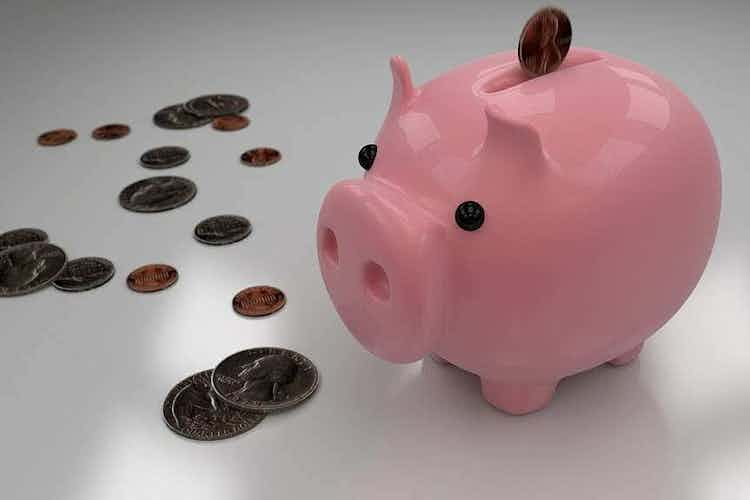Big purchases require plenty of planning. When you are spending a lot of money on something, you want to get it right. Part of the process is figuring out how to pay for it all. Many reach out to their savings but is it the best thing to do?
The benefits of using your savings
If you already have sizeable savings, then it can make sense to use them for big purchases. It is recommended you start saving for many of life's big purchases and emergencies. Having an emergency fund can come in handy. It allows you to respond to urgent spending needs without having to think about getting in debt.
Buying in cash can sometimes lead to further savings on the purchase. The seller can offer a cash discount. The saving could be a fixed amount or a percentage of the price. If you can pay upfront in full, it could mean you end up saving on your purchase. In these situations, using your savings could be worth it.
What about if you don't have enough savings yet? Is it worth saving until you can make a purchase?
Some of the benefits of saving before you buy something big are a little less obvious. You could benefit from having to wait and using the time to think about your options. For example, it could be worth it to look into the different options available to you before you buy a car. While you save for the purchase, you can do research and figure out what option is the best.
You might even realise you don't want the product. Even if you don't end up buying the product, you have managed to create a nice savings fund you can use later.
The downside of using your savings
However, having to wait for a long time does come with its drawbacks. If you need to spend months saving for a product, you could potentially lose out. Valuations can change, and having to put off your purchase could mean you need to pay more in the future to get the same item. With some big purchases, you might not even have the option to purchase what you wanted if you need to wait until a later date.
Dipping into your emergency savings account could also be a bad idea, depending on the purchase you want to make. It might be better to take out a small loan or use credit for certain non-essential purchases. Keeping your savings account untouched for actual financial emergencies could be better than having to re-build it.
The benefits of using credit or borrowing money
You don't need to use savings for all big purchases. It could be a smarter move to borrow money or pay with credit. Urgency is naturally a big reason to borrow money. If you don't have savings already, and an essential household appliance breaks down, you might not have time to start saving. It might not even make financial sense to delay replacing a car or a fridge.
Going into debt could make sense also when your purchase is likely to appreciate. One significant example of this would be a house. House prices typically increase in value, and it makes sense to borrow to buy one. For example, purchasing a second home to rent out for extra income could be an investment you should make sooner rather than later.
You could also find interest payments on debt smaller than gains you make saving money. Interest rates are currently low, which makes borrowing relatively cheap. Since saving account interests are low, saving might not be the most attractive choice right now. It is worth keeping in mind, however, that any interest coming in is typically better than interest on a credit card that increases your outgoings.
The downside of borrowing money
The most obvious downside to using credit is getting in debt. It's important to realise that debt isn't an inherent evil, and the above examples have shown the 'usefulness' of having debt. However, if you don't know how to deal with your debt, then you might be in trouble.
The benefits of borrowing are closely tied to interest rates. As mentioned above, interest rates are low right now, but they could go up in the near future. Interest rates on credit cards can also be in double digits, and you could end up spending more than the initial asking price if you need to use them. If you fall back on your repayment schedule, it could prove extra costly. Large debt can even hurt your credit rating.
Deciding on when to use your savings on big purchases
There is no right and wrong when it comes to using cash or borrowing money for big purchases. Whether or not you should use your savings on big purchases depends on things like:
- What you are buying. Waiting long enough to save money might not be a good idea with certain big purchases.
- How much savings do you have? If you already have considerable savings, you might find it beneficial to dip into those.
- How urgent is the purchase? You might not always have the option to wait until you save with certain emergency purchases.
If you don't have enough savings, you should calculate how long it would take you to save the money you need. You can then look at different borrowing options and calculate the cost of using those. You can get an idea of how beneficial waiting might be.
Approach big purchases with a plan
When you are thinking about making a big purchase, the right financing option can depend on a host of issues. While saving is often a good option, buying on credit isn't necessarily a bad idea either. The most important thing is to have a plan. You want to create a savings plan to help you reach your desired amount as quickly as you can. If you are borrowing or using credit cards, you need a plan for paying off the debt. Make sure to consider both options before you make a big purchase and create a plan of action to ensure the best financial outcome.








